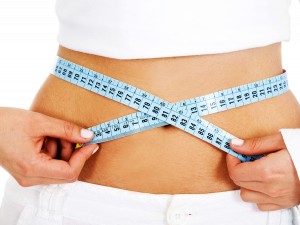 Much media and research is spent exploring and shedding light on vitamin D. Recently I have engaged in several discussions about vitamin D, and have had requests to bring more information to light about it and its role in our health.
Much media and research is spent exploring and shedding light on vitamin D. Recently I have engaged in several discussions about vitamin D, and have had requests to bring more information to light about it and its role in our health.
Sources and absorption of vitamin D
To begin with, it is important to explore how vitamin D is received, used, and processed by the body. There are not many food sources of vitamin D aside from fortified foods (meaning certain foods have vitamin d added to them in their processing and manufacturing). Additional food sources include oily fish, such as salmon or sardines, and cod liver oil. These foods are not adequate sources of vitamin D, but absorption of vitamin D from them can be enhanced through the presence of bile or fat in the intestinal tract. The ultimate source of vitamin D is from sunlight. The type of ray that is required to make vitamin D is UVB rays. This type of ray causes us to be more prone to burns, and so, it is important to have not just UVB light but UVA rays as well. Some individuals choose to obtain vitamin D from tanning beds. Though tanning beds do provide an equivalent vitamin D source, it is important to consider the risks and inquire as to whether or not the tanning bed has UVA combined with UVB rays. The World Health Organization does advice against the use of tanning beds, so please keep this in mind. For more information on the health benefits of sun exposure, refer to this previous blog: https://www.plattsvilledoctor.ca/health-benefits-of-sun-exposure/.
Once the vitamin d is absorbed, it goes to the liver, and then the kidney, where it is converted into an active form. If an individual’s liver or kidney are not functioning up to par, this can alter our ability to make use of vitamin D. This active form is more commonly known as D3.
Conditions aided from vitamin D
Vitamin d is used in the body to influence cell growth, cell differentiation, insulin secretion, and calcium absorption (vitamin K helps with directing this calcium to your bones though). What this translates to is that vitamin d can be beneficial for decreasing tumor growth and tumor metastasis. In addition, vitamin D may be useful for the following conditions:
- Autoimmune disease
- Back pain
- Burns
- Cancer
- Colds and flus
- Congestive heart failure
- Diabetes
- Depression
- Fatigue
- Hearing loss
- Infections
- Muscle pain
- Osteomalacia
- Osteoporosis
- Paget’s disease
- Polycystic ovary syndrome
- Rickets
- Seasonal affective disorder
Though these conditions may benefit from vitamin D, it is best to consult with your health care provider before self – prescribing due to the potential for interaction with any supplements or medication that you may be taking.
Dose of vitamin D
The dose of vitamin D recommended really depends on each individual circumstance. For example, if someone is on certain medication or has a particular medical condition, they may require more vitamin D than another person. In order to attain the most vitamin D from the sun as possible, research has shown that exposure of 5% of your skin (i.e. hands, face and possibly your lower arm) for 15minutes, 3 times a week for 12 weeks to the sun, is equivalent to oral administration of 400iu/day of vitamin D. The greater the skins exposure to the sun the greater the amount of vitamin D that is absorbed. Ultimately, the best dose of vitamin D for you is best discussed with your health care provider.
Have you benefitted from reading this blog? Know someone that would benefit as well? Share, Like, Comment, or Tweet this article, and let me know what you think.
Some of the information provided above may not be appropriate for everyone, please consult with your doctor before trying any of the above. If you are interested in Naturopathic Medicine and wanting a different approach to your health care needs, contact Dr. Elisha Cook ND by calling 519-537-7058 and book your appointment today!

